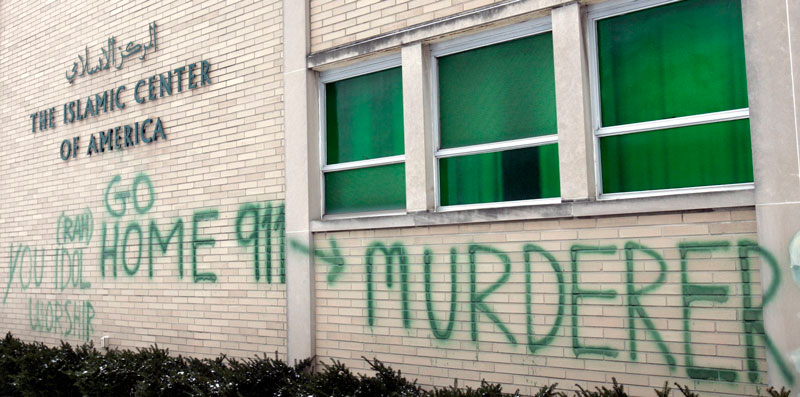Muslims have replaced Jews as targets of discrimination
During the 1940s and 1950s, some Jewish scientists were stripped of their security clearances, causing them to lose their jobs or be downgraded to lower-security projects. One of the most famous cases was that of physicist J. Robert Oppenheimer, known as the “father of the atom bomb,” who lost his clearance in 1954 because he had belonged to a group that also included communist members. “I think it is desirable that the U.S. population, especially its younger members, be reminded of that historical hysteria,” says Edward Gerjuoy, emeritus professor of physics at University of Pittsburgh and a former chair of the American Physical Society Committee on the International Freedom of Scientists.
Today, Muslims are more likely than Jews to lose security clearances, says Sheldon Cohen, a security clearance lawyer in northern Virginia. “I am finding discrimination against Muslims because of their religion and because of Islamophobia,” he says, adding that he finds no evidence of anti-Semitism today.
Muslims employed by the federal government who have lost clearance include Egyptian-born Dr. Moniem El-Ganayni. A nuclear physicist naturalized as an American citizen, his security clearance was revoked in 2007 by the Department of Energy. The American Civil Liberties Union (ACLU) took El-Ganayni’s case to U.S. District Court after the government—contrary to its own policy—denied the scientist the chance to contest the revocation and refused to divulge the reasons behind it, citing “national security.”
El-Ganayni lost his appeal for a hearing and, as a result, his job at the Bettis Atomic Power Lab in West Mifflin, outside Pittsburgh, Pennsylviania. “After September 11,” says El-Ganayni’s attorney Witold Walczak, legal director of the Pennsylvania ACLU, “there was a hyper-vigilance about Muslims and as a result you have some law-abiding Muslims who are unfairly targeted and punished simply because they are Muslim.”
Another high profile case concerned Wagih Makky, also an Egyptian-American. According to court documents, the Federal Aviation Adminsistration (FAA) hired Makky, a technical expert in aviation security, to create a special anti-terrorism unit for passenger jets after the 1988 bombing of Pan Am Flight 103. After 13 years developing technology to detect and prevent explosives from detonating aboard commercial planes and passenger trains—first for the FAA, then for the Transportation Safety Administration—Makky’s clearance was revoked, leading to his dismissal. ACLU also failed in its efforts to challenge this in the justice system.
Although such cases are difficult to win in court—judges are loath to second-guess the government on security clearance issues—the clearance suspension process has significantly improved since the 1950s, says Steven Aftergood, director of the Project on Secrecy for the Federation of American Scientists. “Executive Order 12968 issued under the Clinton Administration in 1995 established more clarity as well as new procedures for seeking reconsideration of adverse decisions,” he says. “The concept of the whole person” means that while “you may have been a convicted criminal in the past, that doesn’t guarantee that you cannot hold clearance in the future. At the same time the playing field is not level. It is the government that decides who will or will not receive a clearance.” You can appeal but you are only guaranteed an explanation.



thanks…